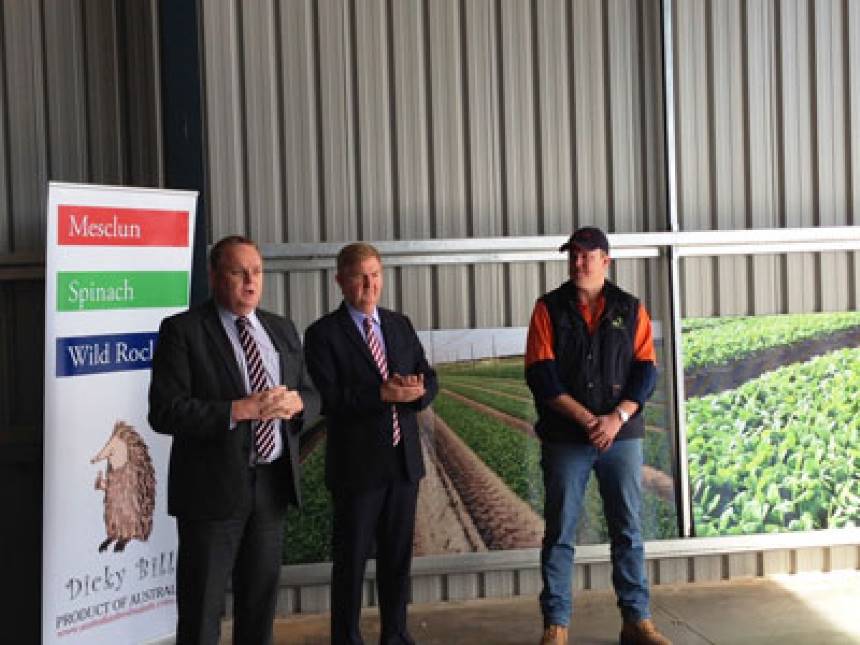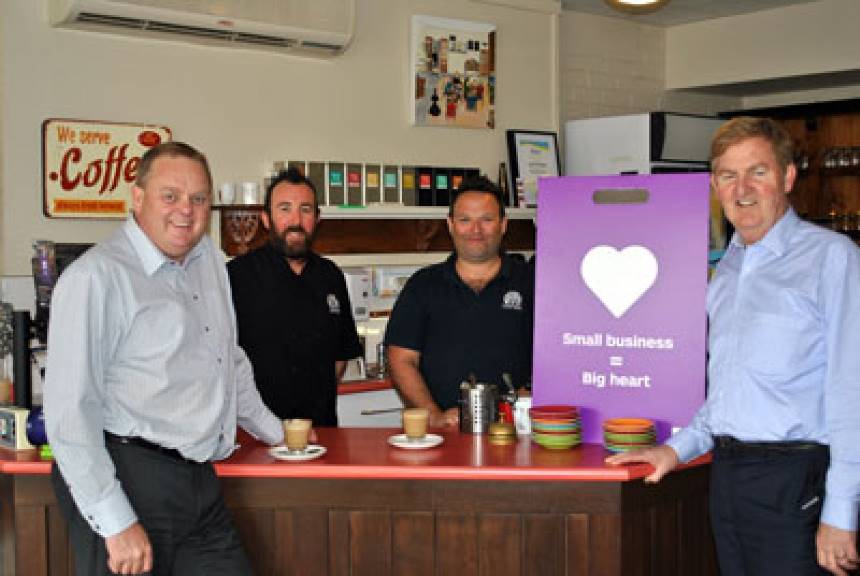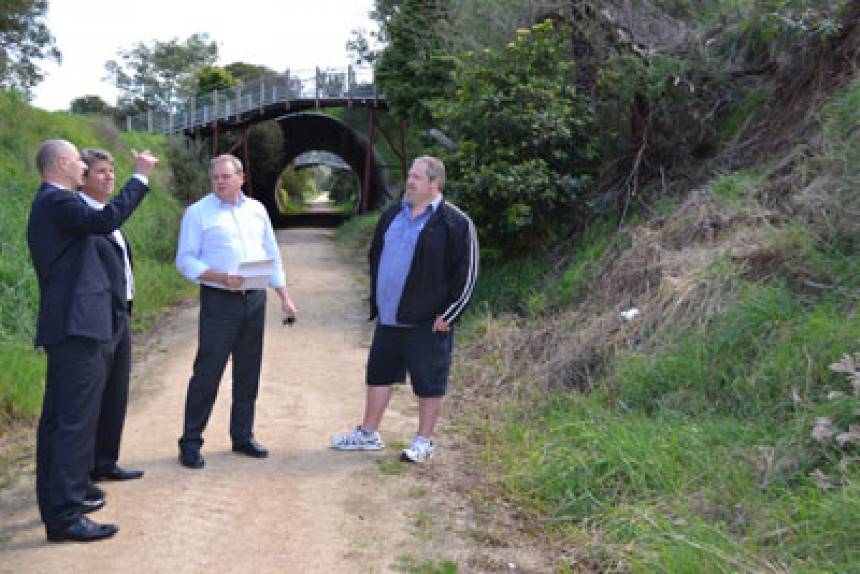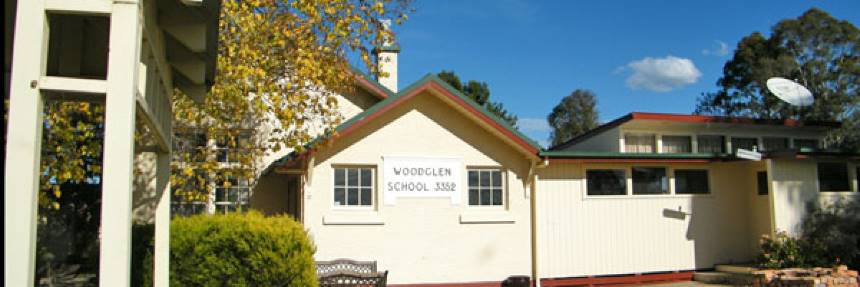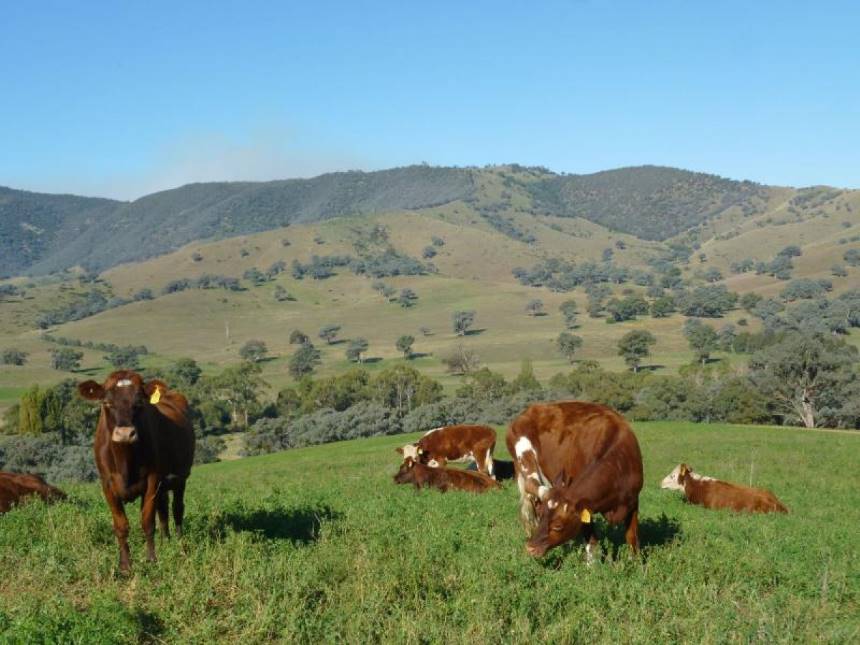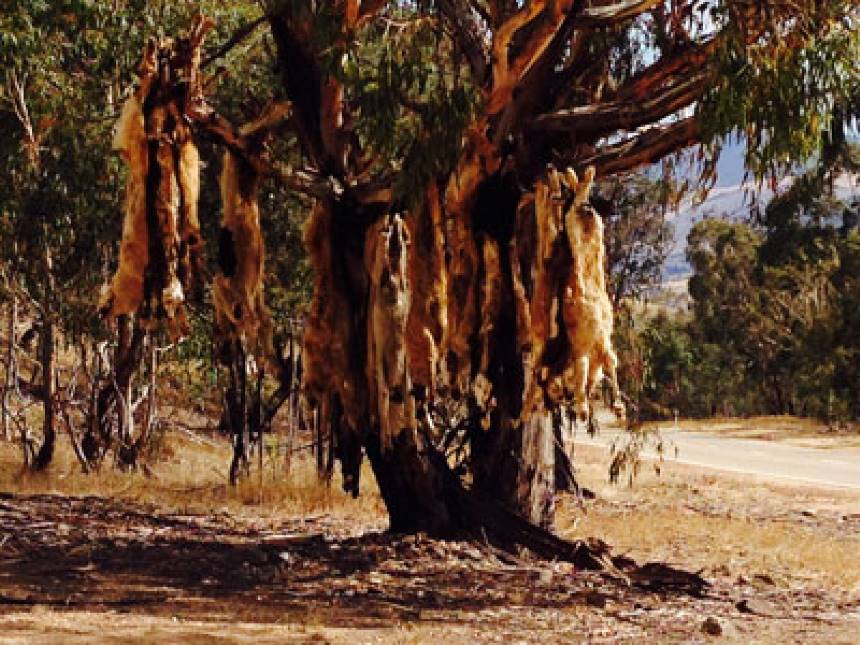Maffra salad maker’s expansion to create 20 jobs
Member for Gippsland East, Tim Bull, speaking at today's Australian Fresh Salads announcement that will create 20 new jobs.
The Victorian Coalition Government is investing $200,000 to enable a major Australian horticultural company to expand its vegetable processing facilities in Maffra, which will increase production and productivity and create 20 new jobs.
In Maffra, Deputy Premier and Leader of The Nationals Peter Ryan joined Minister for Local Government and Aboriginal Affairs and The Nationals Member for Gippsland East Tim Bull to announce the funding.
Mr Bull said that the Coalition Government was proud to be investing in the project with funding from the $1 billion Regional Growth Fund.
“Our funding will enable Australian Fresh Salads Pty Ltd (AFS) to improve and expand its vegetable operations in Maffra by undertaking a $1.5 million expansion project,” Mr Bull said.
“This is a very important project for Maffra and our state because AFS has chosen to expand its vegetable production operation in Victoria.
“AFS is a major Australian producer of fresh cut salads, specialising in the growing, harvesting and processing of salad products for the retail, food service and wholesale markets.
“After the 2011 floods in Queensland, AFS decided to begin investment in Victoria by purchasing land at Maffra in the Macalister Irrigation District.
“In 2012, the company successfully invested in land, irrigation infrastructure, a vegetable cool room, processing and storage facilities in the Maffra region, which has now resulted in further investment of $1.5 million.
“The current Victorian operation has approximately 15 employees, with this expansion to create an additional 20 new jobs in Gippsland.”
Mr Ryan said AFS’s investment would involve the construction of a new vegetable processing, washing and drying facilities and new plant and equipment to support the existing infrastructure.
“It will also include construction of a micro testing, quality control and food safety validation operational area, an increased refrigeration capacity and new truck loading facilities,” Mr Ryan said.
“AFS’s expansion in Gippsland will result in the company being able to reliably supply year-round demand for its products due to operating in both Queensland and Victoria, with counter seasonal climatic conditions.
“The project will also provide AFS with the opportunity to enter export markets in South East Asia.”
Mr Ryan said the Regional Growth Fund had invested $200,000, with the balance of the project funds being provided by AFS.
“Our $1 billion Regional Growth Fund is investing in community-led projects to strategically drive jobs, investment and innovation in rural and regional Victoria.
“Since it was established in 2011, the Regional Growth Fund has delivered almost $440 million, generating $1.8 billion in total investment across 1,600 projects.”
Mr Ryan said the project would be completed in November this year.
Heyfield Small Business Day
Promoting Support Small Business Day in Heyfield this morning were Deputy Premier and The Leader of the Nationals Peter Ryan and Member for Gippsland East Tim Bull with Café 3858 owners Jamie Riley and Zac Stamos.
Gippslanders are being encouraged to buy local to support small businesses across the region in the lead-up to Support Small Business Day on Saturday 4 October.
Deputy Premier and The Nationals Member for Gippsland South Peter Ryan today joined The Nationals Member for Gippsland East Tim Bull at CAFÉ 3858 in Heyfield to promote Support Small Business Day.
“Businesses such as Café 3858 in George Street Heyfield, run by Jamie Riley and Zac Stamos, contribute a great deal to our local economies,” Mr Ryan said.
“Jamie, originally from Heyfield, and Zac moved to Heyfield almost four years ago, purchasing the business and bringing with them a slice of Melbourne Café culture.
“They have grown the business which can now seat around 70 people inside, with room for another 40 in their courtyard.
“Their cafe has won several awards including Best Cafe twice and Best Coffee in the Wellington People Choice Awards and they have received numerous positive reviews in newspapers such as the Herald Sun and the Age.
“Jamie and Zac are a great example of our dedicated local small businesses owners investing in our local communities and I encourage locals to continue to support them by purchasing a coffee, cake or and some of the other delicious food they have on offer.”
Mr Bull said it was important locals supported small businesses such as Café 3858.
“Local small businesses employ local staff, which creates local jobs, they purchase local goods and services and reinvest in our local communities,” Mr Bull said.
“Whenever $100 is spent in a local small business, $50 is retained in the local economy.
“Whether it is purchasing the day’s milk for coffee, bread for sandwiches, or dropping into Tryhorn Supermarket for supplies, businesses like Jamie and Zac’s Café 3858 are reinvesting in our local communities and making your dollar go further.
“Local businesses are also the first to give back to their communities by putting up their hands to sponsor local sports clubs, charities or other local initiatives.”
Mr Bull said to further encourage locals to support local small businesses in the lead-up to Support Small Business Day, the Victorian Coalition Government and Bendigo Bank had partnered to give locals the chance to win gift cards that can be spent at participating businesses.
“There are thousands of gift cards be won as part of this initiative which runs throughout the month of September,” Mr Bull said.
“I encourage shoppers and businesses to visit the Support Small Business Day website to see some of the great competitions and initiatives which are on offer.
“Last year more than 4,000 small businesses and consumers participated in the inaugural event and it would be great if we could boost those numbers this year.”
Mr Bull said to participate, small businesses and shoppers across Gippsland could register at www.supportsmallbusinessday.vic.gov.au
$186,000 upgrade for rail trail at Bruthen
Member for Gippsland East, Tim Bull, discusses the upcoming works program for the East Gippsland Rail Trail – Bruthen Section Project with James Nicholas (representing Bruthen Traders), East Gippsland Shire Council’s Chris Waites (Acting CEO) and Cr Mark Reeves (Mayor).
The State Coalition Government is investing $139,500 from the $1 billion Regional Growth Fund to upgrade the Bruthen section of the East Gippsland Rail Trail, Member for Gippsland East, Tim Bull, announced today.
“Bruthen has established itself as a distinct tourism, arts and events hub, and is well known for the annual Bruthen Blues Festival,” Mr Bull said.
“The town is also a major stopping point on the Great Alpine Road and the highway route from Bairnsdale heading interstate.
“Bruthen’s popularity with visitors travelling, to and through, this part of East Gippsland is greatly enhanced by the rail trail and the opportunities it provides as a way to explore the region.
“In 2013, more than 16,000 rail trail users spent an estimated $1.7 million in the region, with almost 30 per cent travelling on the Bruthen section and contributing over $485,000 to the town’s economy.
“The project will deliver value-adding infrastructure to the East Gippsland Rail Trail including upgraded access points, embankment and drainage works, revegetation, signage, and the full upgrade of a major linking track in the Bruthen township.”
Mr Bull said new investment in local rail trail infrastructure would encourage even more users and, in turn, stimulate business growth and jobs in the town and overall East Gippsland region.
“The project supports the longer-term viability of the rail trail over its entire length as a key regional asset. It will also encourage residents to use the rail trail more, leading to better recreation, health and wellbeing outcomes.”
Mr Bull said Victorian Government funding towards the $186,000 Upgrading the East Gippsland Rail Trail (Bruthen Township Section) would be provided through the Regional Growth Fund to East Gippsland Shire Council which would contribute $20,000, along with a contribution of $21,500 from East Gippsland Rail Trail and $5,000 in-kind support.
“This investment is another example of the Victorian Government’s $1 billion Regional Growth Fund which enables local government and community groups to develop much-needed local infrastructure projects. Unfortunately Labor intends to scrap the Regional Growth Fund, which would be disastrous for rural areas.
“Since it was established in 2011, the Regional Growth Fund has delivered almost $430 million, generating over $1.7 billion of total investment across 1500 projects.”
In East Gippsland Shire, the Regional Growth Fund has delivered $10.4 million to 59 projects, generating $26.2 of total investment. These projects include:
- $500,000 for the $1.25 million Bairnsdale CBD Improvement Project
- $450,000 for the Davison Oval - All Abilities Playground
- $346,000 for the Visitor Information Centre Upgrades
The project is expected to be completed in June 2015.
$38,290 boost for Lindenow Primary School
State Member for Gippsland East, Tim Bull, has announced a $38,290 upgrade at the Lindenow Primary School.
Mr Bull said the funds will enable the refurbishment of the school's main classroom wing, including relining and repainting walls, changing light fixtures, putting fly screens on to windows and potentially restumping and replacing worn floor areas.
“The internal changes are aimed at bringing more light into the buildings and creating classrooms more aligned with 21st century teachings.
“Lindenow Primary is a growing school community with over 100 students enrolled, making it even more important to ensure the school’s facilities are kept up-to-date,” he said.
“This funding to Lindenow Primary School is part of a broader investment in school maintenance across Victoria,” Mr Bull said.
“The money will go towards upgrading school buildings which have been identified as needing maintenance works.”
Minister for Education Martin Dixon said the Coalition Government has stepped in and is making up for 11 years of Labor neglect.
“Daniel Andrews and Labor cannot hide from the truth – Labor cut school maintenance funding by 20 per cent when it was last in government,” Mr Dixon said.
“And once again, Labor proved to be incapable of basic maths when the Building the Education Revolution program was underfunded by $70 million.
“What is also disappointing for Victorian schools is that Labor had promised capital works projects for around 200 schools, but broke that promise by never delivering any of them.
“During the 2012 maintenance audit all 27,000 Victorian government school buildings were assessed, and the audit exposed a decade of Labor neglect.
“Since 2011, the Coalition Government has delivered a $1.1 billion investment in school infrastructure, including 23 new schools and upgrades to hundreds of existing schools.
“This is in addition to the $51.5 million allocated in 2013, and $71 million allocated in the 2014-15 Victorian State Budget to tackle Labor’s $420 million school maintenance backlog.
“The Coalition Government has delivered on its election promises, and increased school maintenance funding by over 40 per cent.
"The Coalition Government will be announcing further details of our commitment to education when we release the overarching policy closer to the election,” Mr Dixon said..
Funds to develop rural land strategy
The Victorian Coalition Government is supporting East Gippsland Shire’s development of a new rural land use strategy to secure the future of farming and associated industries in East Gippsland.
Member for Gippsland East, Tim Bull, said the Victorian Government funding towards the $120,000 East Gippsland Rural Land Use Strategy Project would be provided through the Regional Growth Fund to East Gippsland Shire Council, which would contribute $30,000.
“The aim of the strategy will be to provide clear direction for agriculture and farming in East Gippsland, and to identify opportunities to develop new industries in the region.
“The $173 million agrifood sector is of vital importance for East Gippsland, with food manufacturing and food production fundamental drivers of the local economy.
“But East Gippsland’s agricultural and farming land is under increasing pressure from subdivision and encroachment of incompatible uses, which threaten the viability and productivity of this important industry sector.”
“It is essential to properly understand the value of the different types of rural land in East Gippsland and determine the right course of action to ensure its ongoing productivity.”
Mr Bull said this new strategy recognised the importance of agriculture to the economy, and the need to support efficient agricultural production and protect the sustainable productivity of soils in East Gippsland.
The project outcomes will:
- establish the existing conditions of rural land and changing trends in agriculture in the area;
- determine whether any land may need to be reclassified;
- recommend how existing zone controls can be strengthened;
- determine the relationship between subdivision and development of agricultural land;
- clarify the purpose of each of the rural land zones; and
- recommend which zone land should sit within.
“The process will involve thorough research and consultation on changing trends in agriculture, population and settlement, and environment and landscape in the region to fully understand the function, values and prospects for our rural land,” Mr Bull said.
Mayor of the East Gippsland Shire Council, Cr Mark Reeves, said the project is included in the Council Plan and will assist to deliver certainty around land use and opportunities in the region’s important rural areas.
The East Gippsland Rural Land Use Strategy project is expected to be complete by December 2015.
3km buffer zone to be removed
Member for Gippsland East, Tim Bull, has welcomed the announcement by the Victorian Agriculture Minister, Peter Walsh, that the 3km buffer zone for wild dog control will be abolished.
The zone is the area or Crown Land abutting freehold where wild dog controllers concentrate their efforts. Doggers can operate outside the zone with permission, but its abolition will remove this requirement.
“Many farmers in my electorate from areas including Omeo, Benambra, Swifts Creek, Dargo and Bonang have advocated through my office for the removal of the buffer zone and it is something myself and other rural MP's have advocated for.
"There are times when controllers identify the best chance of trapping a problem dog is outside this zone and its removal takes away a level of restrictive red tape.
“It is very pleasing Minister Walsh has now confirmed the zone will be removed, making it easier for trappers and farmers to control the scourge of wild dogs."
“Now that we have merged DPI and DSE, there is no longer a need for trappers to apply to their own department for permission to bait in these areas, which is a great outcome,” he said.
Minister for Agriculture, Peter Walsh, said the Coalition Government has introduced Local Area Work Plans which allow farmers to work with the department to identify areas, including crown land, where wild dog control is needed.
“Once the plans have been approved, baiting and trapping of wild dogs on Crown Land outside the buffer zone will be permitted, and means individual permits are no longer required.
“Trappers will also have the flexibility to apply to undertake work in other crown land regions if an outbreak occurs,” he said.
Mr Walsh said this change will be signed off within weeks, and comes on top of a list of policy issues and actions achieved by this government including:
- Re-introduction of Lanes traps at the request of doggers and local community members after they were banned by Labor.
- Introduction of the wild dog and fox bounty and then doubled the wild dog bounty in January 2013 to $100, which has seen over 1200 pelts handed in.
- Established and grown community baiting programs with many landholders now participating.
- Maintained 72 hour trap checking for doggers (rather than move to 24 hour checking as was to occur under Labor) to allow doggers more flexibility to go about their business.
- Allowed farmers to undertake dog control measures outside their boundary as part of their co-ordinated baiting programs - with the intention to grow this in more areas.
- Introduced aerial baiting, which was opposed by Labor
- Provided iPads to the doggers so data can be entered in the field, removing the need for doggers to spend time in offices and this allowing more time in the field.
- Now employing contractor and casual staff to provide more flexibility to the dog control program. This is forming the basis of a transition plan with some of the contractors/casuals being employed aged in their 30’s and 40’s.


